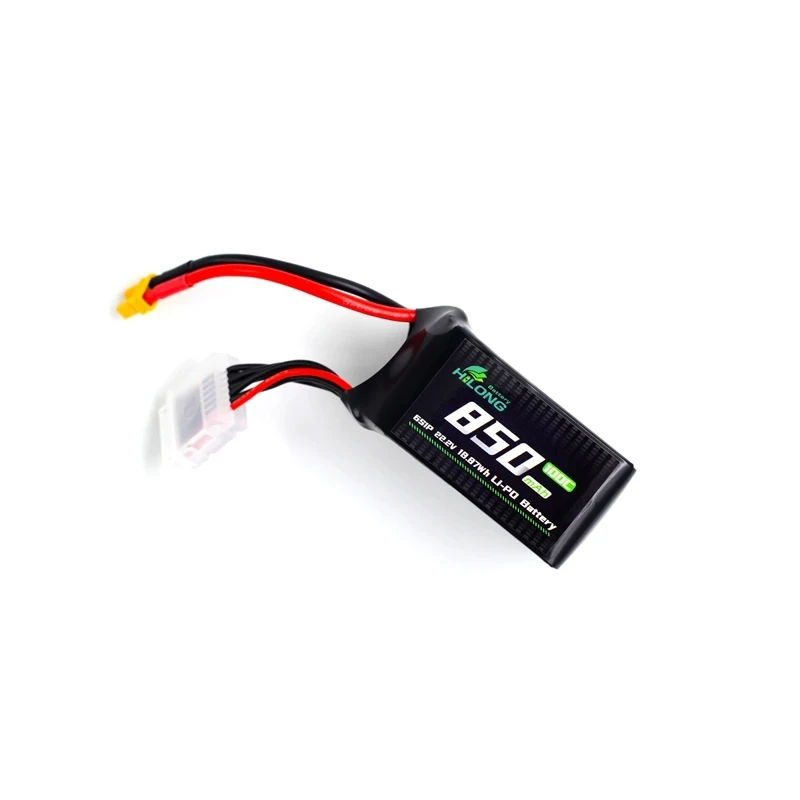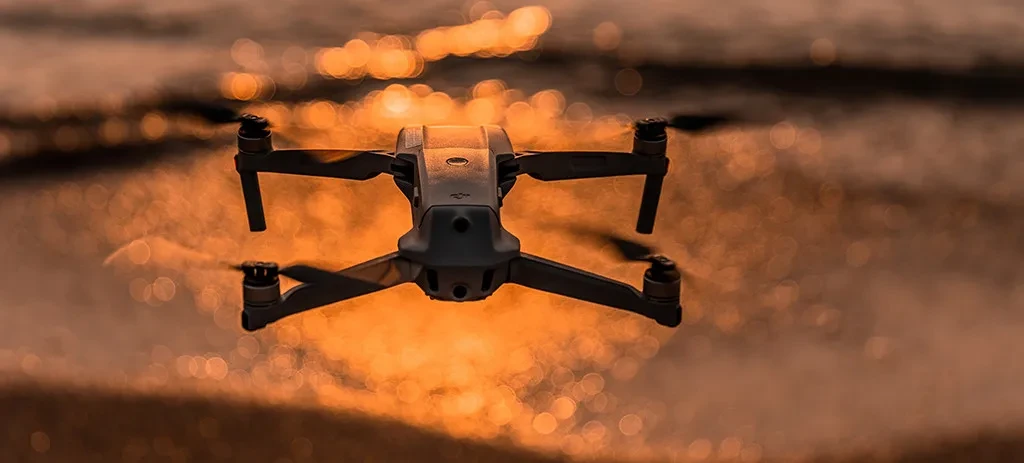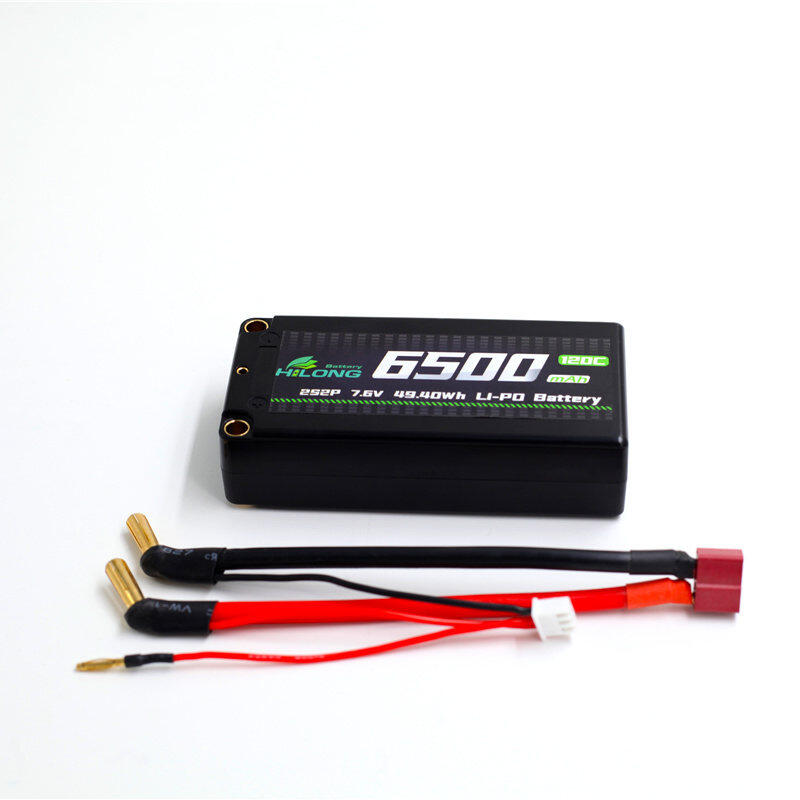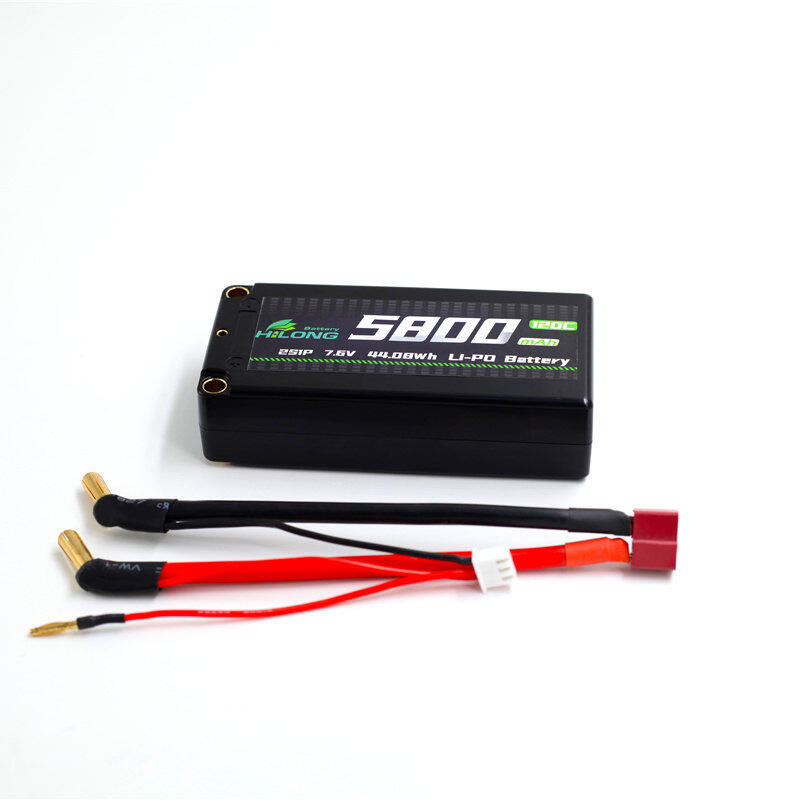The longevity of batteries in remote control (RC) aircraft is a critical aspect that influences the overall flying experience. It's not just about how long the aircraft can stay airborne on a single charge, but also about the battery's overall lifespan - how many charge cycles it can undergo before its performance significantly deteriorates.
Lithium Polymer (LiPo) Batteries
Lithium Polymer (LiPo) batteries are a popular choice for RC enthusiasts due to their high energy-to-weight ratio and ability to deliver high discharge rates.
Flight Time: On a single charge, a LiPo battery typically powers an RC aircraft for about 15 to 25 minutes, depending on the model's power demands.
Overall Lifespan: In terms of lifespan, a LiPo battery usually lasts for around 300 to 500 charge cycles if properly maintained.
Maintenance: They require careful handling and proper storage conditions to maximize their lifespan. Overcharging, discharging below the recommended level, or storing in extreme temperatures can significantly shorten a LiPo battery's life.
Nickel-Metal Hydride (NiMH) Batteries
Nickel-metal hydride (NiMH) batteries are known for their robustness and ease of use, albeit at the cost of lower energy density and higher weight.
Flight Time: A NiMH battery generally provides a shorter flight time than a LiPo battery, often in the range of 5 to 10 minutes.
Overall Lifespan: When it comes to overall lifespan, NiMH batteries can outlast LiPos, with a typical lifespan of 500 to 1000 charge cycles.
Maintenance: They are less sensitive to overcharging and can be stored in a wider range of temperatures, making them easier to maintain.
Lithium-Ion (Li-ion) Batteries
Lithium-ion (Li-ion) batteries offer a higher energy density than LiPos, translating to longer flight times.
Flight Time: On a single charge, Li-ion batteries can power an RC aircraft for around 20 to 30 minutes.
Overall Lifespan: In terms of overall lifespan, Li-ion batteries typically last for about 500 to 1000 charge cycles.
Maintenance: Like LiPo batteries, they require careful charging and storage practices to prevent overheating and potential fire risks.
Lithium Iron Phosphate (LiFePO4) Batteries
Lithium Iron Phosphate (LiFePO4) batteries are valued for their safety features and stability, although they have a lower energy density than LiPo and Li-ion batteries.
Flight Time: On a single charge, LiFePO4 batteries tend to provide similar flight times to NiMH batteries, typically around 5 to 10 minutes.
Overall Lifespan: They shine in terms of lifespan, with some LiFePO4 batteries lasting up to 2000 charge cycles.
Maintenance: They are less prone to thermal runaway and can be stored in a wider range of temperatures, making them easier to maintain.
Hilong 850mAh 22.2V 6S1P 100C Li-PO Battery Pack for Aircraft FPV
Other Factors Affecting Lifespan of RC Aircraft Battery
While the above article has touched upon the lifespan and maintenance of different types of RC aircraft batteries, other factors can influence battery longevity.
Usage Habits
How you use your RC aircraft can significantly impact the battery's lifespan. For instance, constantly pushing your aircraft to its limits will require more power, which in turn puts more strain on the battery. This could lead to a shorter lifespan for the battery. Similarly, frequent short flights with full recharge between them can also reduce battery life, as it increases the number of charge cycles the battery undergoes.
The Importance of a Balanced Charge
For multi-cell batteries like LiPo, Li-ion, and LiFePO4, maintaining a balanced charge is crucial. A balanced charge ensures each cell in the battery has an equal voltage. If one cell has a higher voltage than the others, it can lead to over-discharge or over-charge, reducing the battery's overall lifespan.
Battery Storage
The way you store your battery when not in use can also affect its lifespan. For instance, LiPo batteries should be stored at approximately 3.8V per cell (or about 50% charge) in a cool, dry place. Storing a fully charged LiPo battery for a long period can result in decreased capacity and performance.
Understanding Battery Specifications
Understanding your battery's specifications can also help maximize its lifespan. For instance, never exceed the maximum discharge rate (C-rating) of the battery. Doing so can generate excessive heat and damage the battery.
Regular Battery Checks
Regularly checking your battery's health can help detect any potential issues early and extend its lifespan. Look for signs of physical damage, like puffing in LiPo batteries. Use a battery tester or multimeter to check the voltage of each cell in a pack. If you find any significant disparities, it might be time to retire the battery.
The lifespan of an RC aircraft battery is influenced by its type, how it's used, and how well it's maintained. By understanding these factors, you can make informed decisions that will help maximize your RC aircraft battery's lifespan, enhancing your flying experience and reducing the need for frequent battery replacements.





.jpg)

